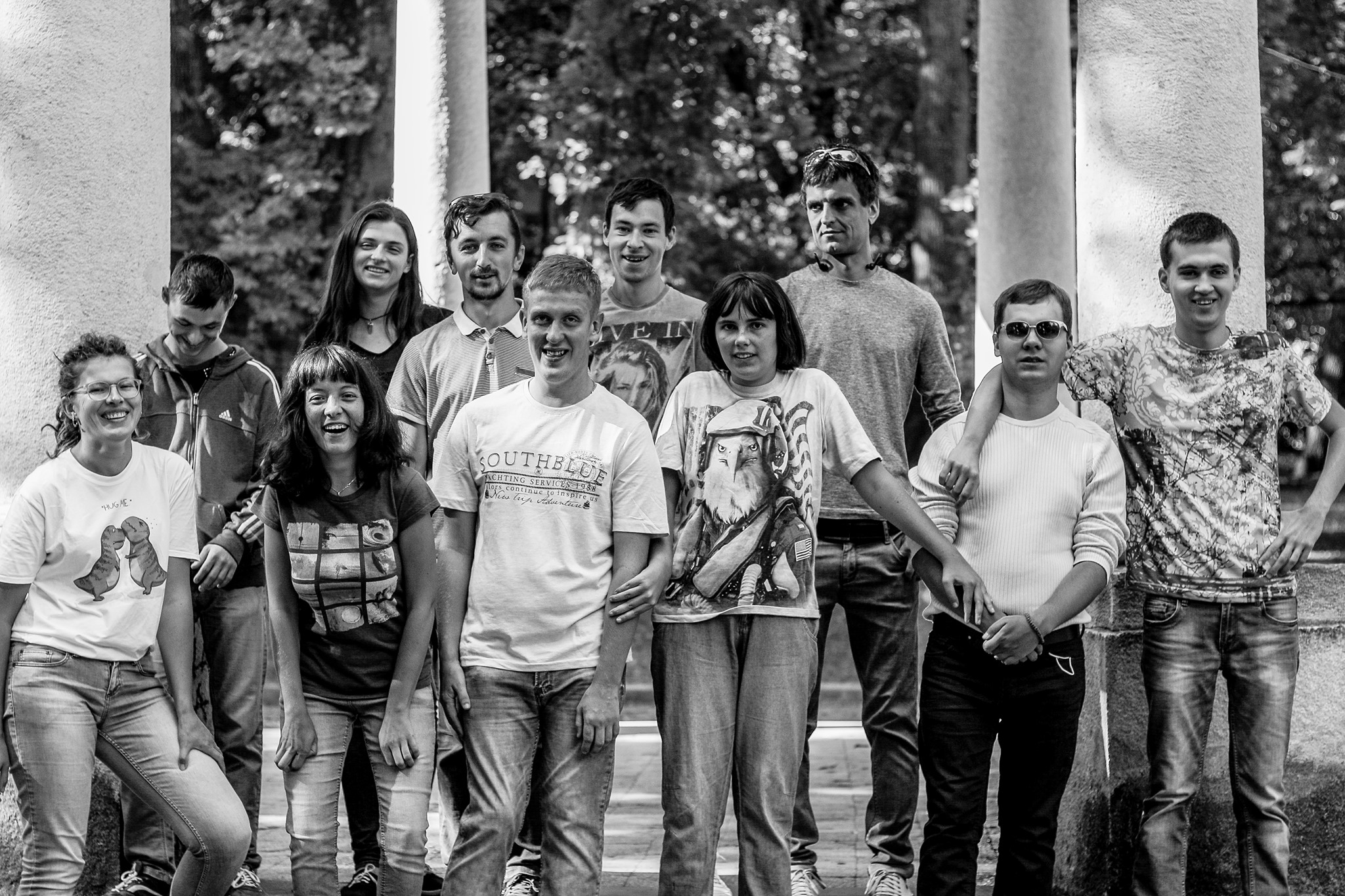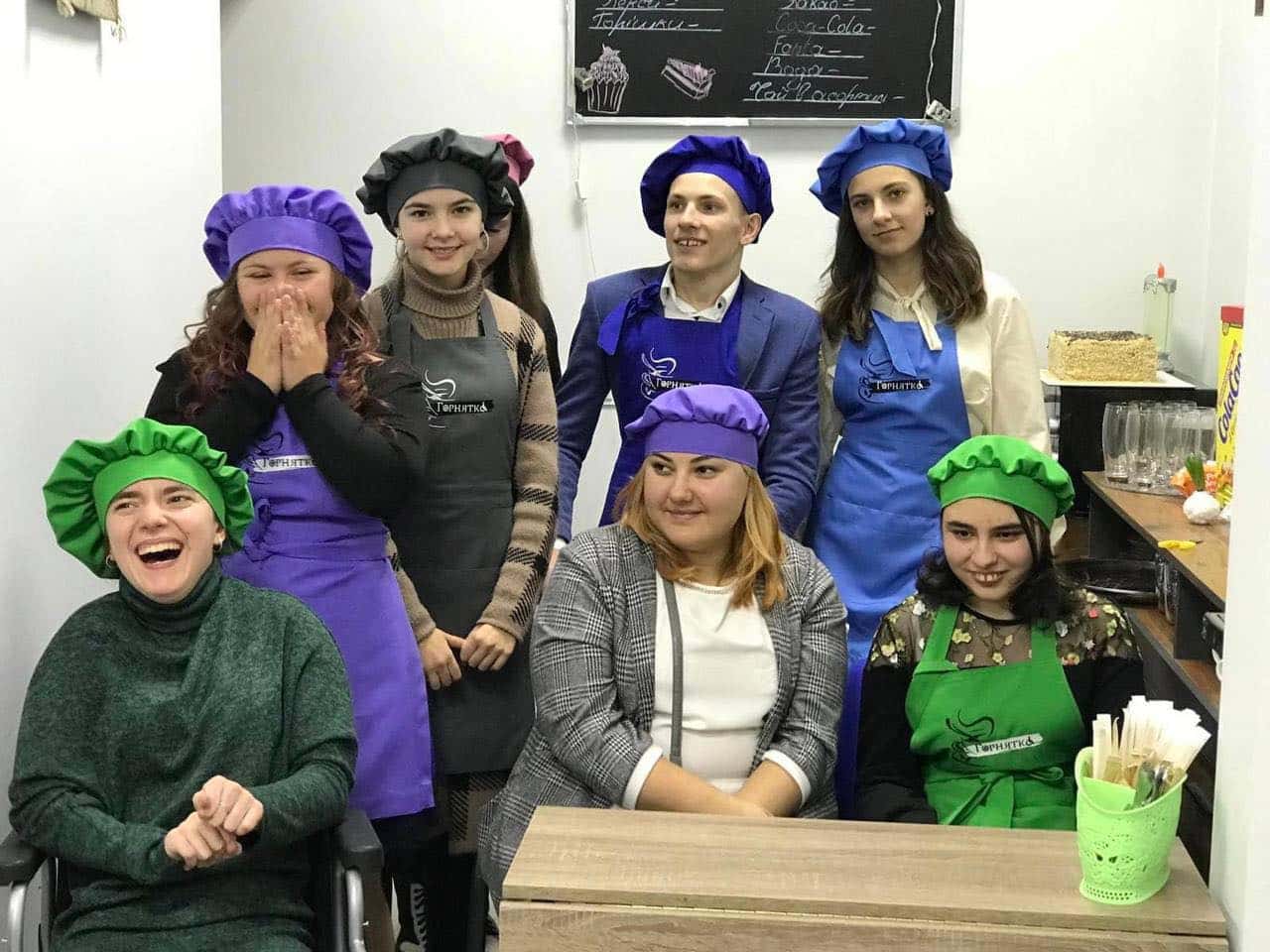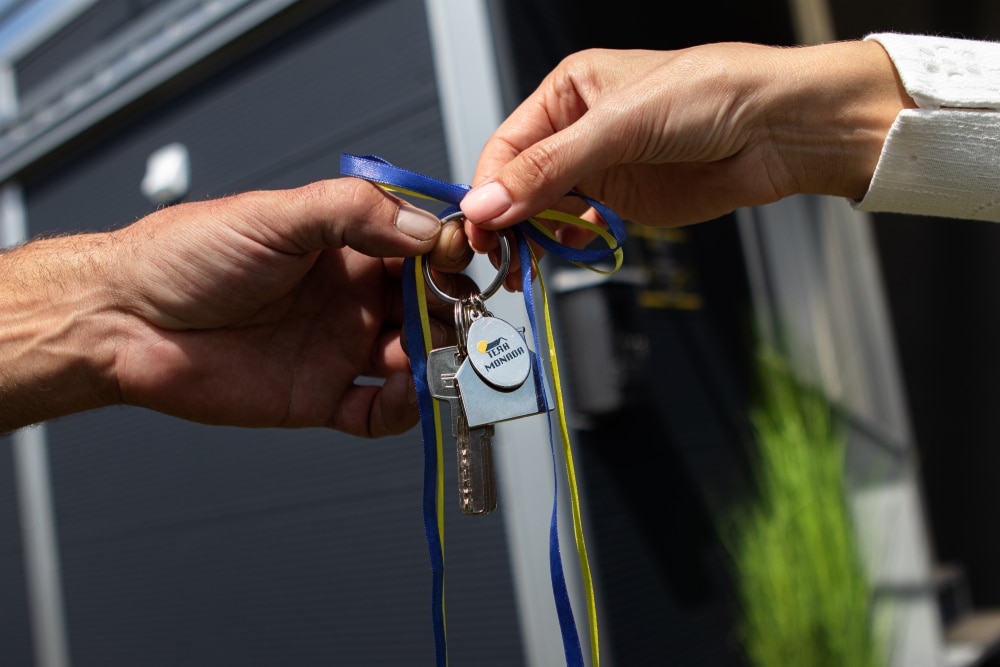Why it’s better not to the term “rain people” and do all people with autism like to sit in their favorite place, like Sheldon Cooper?
Why it’s better not to simplify the situation and think that when you understand one person with a certain condition you have understanding of everyone who has a similar condition?
Halyna Shtohryn, coordinator of Dream Workshop Center for Youth with Mental Disabilities explains.
You know how it happens – you are constantly in your business, and over time, it seems that you know everything. It is not a problem for a confectioner to make a mirror glaze, for a car mechanic, to replace candles in the engine, and for me, to work with people with mental disorders. However, sometimes I remind myself that my everyday life for someone else is a white spot on the map of knowledge.
I have been working at the Dream Workshop Center in Lviv for a year and a half. The workshop operates for 5 years, we have 11 students whom we work with for 6 hours a day. Young people with autism, Down syndrome, cerebral palsy and various intellectual disorders come to us to study and socialize. They are often speechless, closed or hyperactive, and always extremely individual.
Individual does not mean “every personality is as unique as a snowflake,” because we can say it about every person. In our center, if we elaborate the metaphor, not snowflakes, but whole planets intersect. Because when you learned to understand one person with autism, you learned to understand only that particular person. Not autism in general. With a new student, you have to learn everything from scratch.
I went through special year-long training, read a lot of materials, but I still mostly learn in practice. You live your life for 30 years, you have a character that flares up like a match, and a neurotypical brain. But here is your student who is, say, 25 y.o., and needs everything to be explained to him hundreds of times, since he has an atypical brain. You are both two young people, and do you have more in common, or you are totally different persons?
I decided that I had something in common, so I began to learn to speak in simple words, to be more attentive and to read information not only from speech, but also from gestures and looks. Instead, I get a bridge across which I can get to alien planets and explore them, which I would never be able to do in more common professions.
People with mental disorders perceive the world differently. Someone may feel serious physical discomfort due to a small inner seam on the clothes, because they have increased sensory sensitivity. Someone will ask the same question every day, because the same answer allows you to experience a safe situation again and again: “You asked, and you were answered, so everything in the world is in its place.”
In our workshop, we have both students who love activity and constant movement, and those who will sit in one place for years (remember Sheldon Cooper from The Big Bang Theory with his favorite That’s my spot?). My job is to help the former learn control their temper, and the latter, gradually get out of their shell for at least a few minutes/hours a day.
When I come to work, I have to answer Katia’s question “What kind of manicure do you have today?” And tell Petro which tram I took. Be sure to argue about washing dishes with Maksym, hearing every time: “I made myself clean of it forever!” Help come up with a recipe for dinner to a person on duty in the kitchen, because everybody takes turn to cook here, even if at home they avoided it for years. Also, make sure that no trickster secretly ate a whole box of candies, prudently hidden high on a shelf (sometimes it seems that our students have extraordinary abilities to find sweets).
Sometimes the results of work will come many years later, but still are noticeable. For example, we recently witnessed a mini-miracle: our student Lionia, who never agreed to read aloud the story at a traditional morning meeting during the whole workshop, suddenly showed enthusiasm and picked up the book himself. It took us 54 months of work for this stern samurai to make a new point in his unbreakable schedule and habitual interaction. Because autism is a condition that cannot be canceled with a magic pill, it can only be managed through systematic work.
That’s why most of our days look like a routine. Sometimes it seems to me that relatives who pick up the students from the sorkshop at the end of the day think that we just sit and play UNO all day long, because we have a ritual: to end the day with a board game. The world can turn upside down, and we will sit and play UNO from 15:30 to 16:00. This part of the day allows student brains to relax, run a reward system for a well-worked day, and enter a sense of “safe place” that brings about peace. Such training will help cope with the unpredictability of the street after leaving the workshop.
Why do we say “students”?
Sometimes even parents laugh a little at this. They say, who of them is a student? But we are sure that a person who studies systematically and in an organized manner is a student. And this word is optimal for the age of our visitors.
After all, we do not work with “young children,” as journalists often put it. Disability in Ukraine is still associated with young children who need to be pitied and given candy. But children with disabilities grow into adults with disabilities, and do not evaporate after reaching 18 years of age. Society also needs to work with them rather than isolate them within four walls, as is usually the case. And please don’t measure goodness with candy alone.
It infuriates me when I hear the words “your wards,” “your patients.” Because we don’t want to take care of anyone like Mother Teresa.
Neither I understand when they say we “upbring” our students. You can upbring a young child, and we only work with adults. You can help them learn something, but not bring them up like Mary Poppins.
We do not use the common term “friends.” Because we believe that friendship is something very personal and it does not arise between everyone. Although we have those who are very close and spend time together outside the workshop, in general we position our environment like any other team with a healthy atmosphere – everyone treats each other amicably, everything else is at their personal discretion.
We do not work with “sunny children,” “rain people” and do not welcome it when people are talked about as a poetic state of weather. But this is a topic for a separate large column.
In general, with this essay I want to emphasize once again the main thing: people with mental disorders are not scary at all and are no worse, but just different. They also seek friendship, involvement and a sense of responsibility for their own lives and decisions. And the best thing we can give them is not pity and chocolate for St Nicholas Day, but equal treatment and open opportunities.








